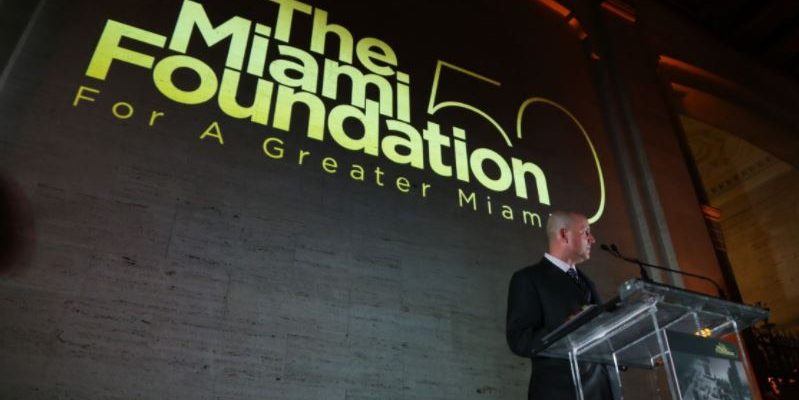Whenever Javier Alberto Soto thinks of Miami, he is confronted with a story of two cities where an ever deepening equality gorge stands between the rich and the poor.
It is, however, Soto’s desire to fill up this gorge by funding the efforts of local nonprofits. Soto is the president and CEO of a philanthropic group, celebrating its 50th anniversary -The Miami Foundation.
The foundation made a $1 million pledge aimed at helping the nonprofit sector in Miami, including areas promoting resilience and creativity. About this pledge, Soto announced during the group’s anniversary, that five nonprofits operating in Miami-Dade county have been chosen to receive $300,000 worth of grants from the foundation putting into consideration the many efforts they have put into creating equal chances for those that are economically and socially below standard in the community.
“Fifty years later, we’re still focused on equality and opportunity, ” he said.
The nonprofits to receive the grant are Carrfour Supportive Housing, Overtown Youth Center, Voices for Our Children, Breakthrough Miami and Grameen America, which will also be given a $50,000 capital investment to fund its micro-business financing initiative targeted at low-income women in Miami. These nonprofits deal with various causes, including affordable housing, legal services, and educational services for disadvantaged youth and adults.
Breakthrough Miami offers students academic enrichment programs, and it’s CEO, Elissa Vanava, said that the grants were a tangible proof of the services provided by the nonprofits for the City and Miami -Dade County.
“It’s a commemoration of the abilities of this community when it is united, “ she said.
A most recent census data shows that 20 percent of residents of Miami-Dade County live in poverty, and 21 percent of those below 65 have no health insurance.
The work nonprofits do in Miami is very important and as such, needs every possible help they can get to achieve their goal of improving inequality. This was pointed out by keynote speaker Xavier de Souza Briggs, the vice president of economic opportunity and markets for the Ford Foundation.
He also pointed out that the origin of Miami as a low-wage haven and the segregation that’s still being practiced among its residents pose as the major issues that separate Miami from other cities. Briggs, Miami-born and bred, said that these challenges shouldn’t be left entirely to charities or nonprofits alone. He urged the Universities and government to show interest and shoulder some of the load.
“It’s a task that nonprofits can’t take on alone, “ he said. It’s quite unacceptable to think of this as a project for the nonprofits or charities alone. It should be thought of as a problem-solving task for the community bringing together the various sectors of the community. The Miami Foundation and other philanthropies have constantly worked towards this realization and until it is achieved will we discover what it’s gonna take to overcome these huge challenges.

